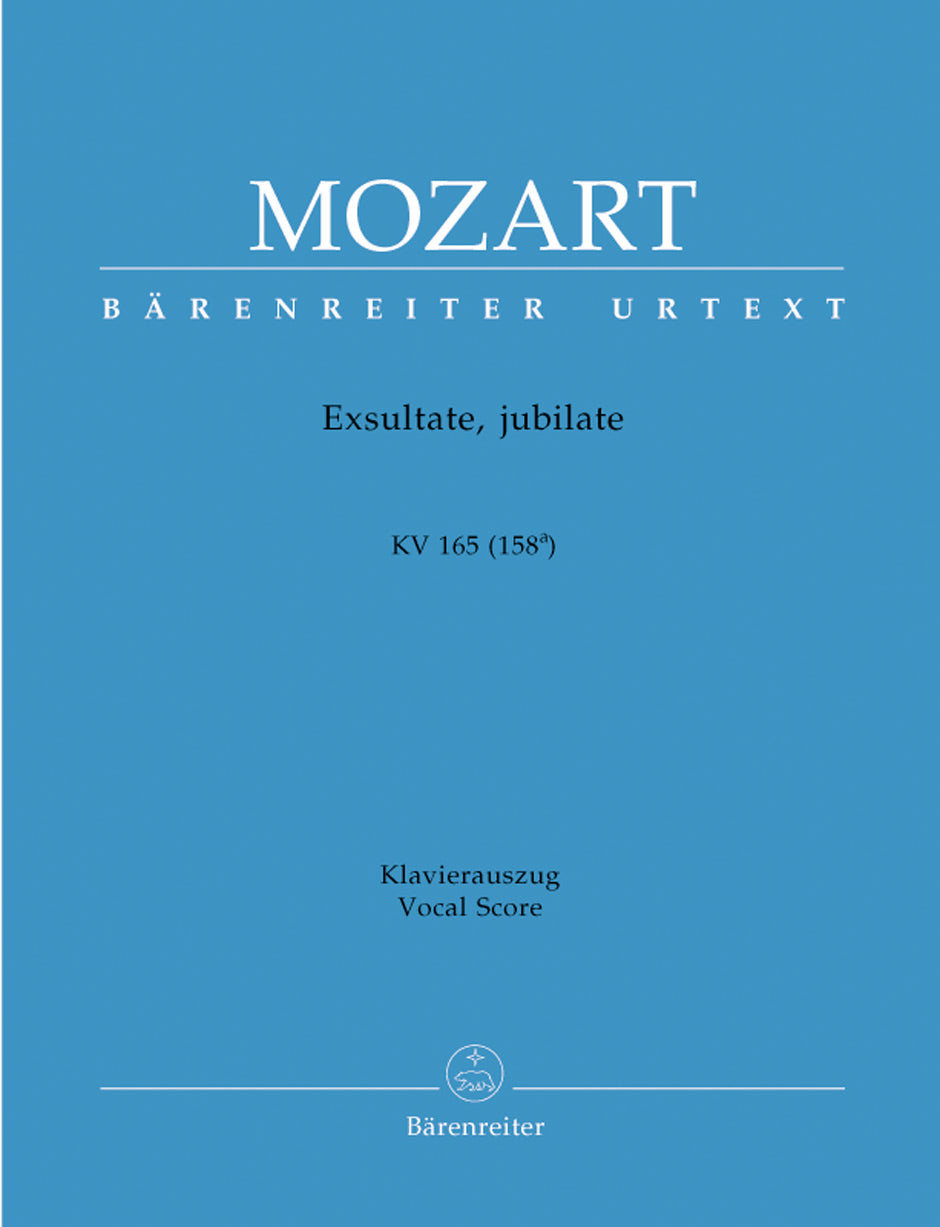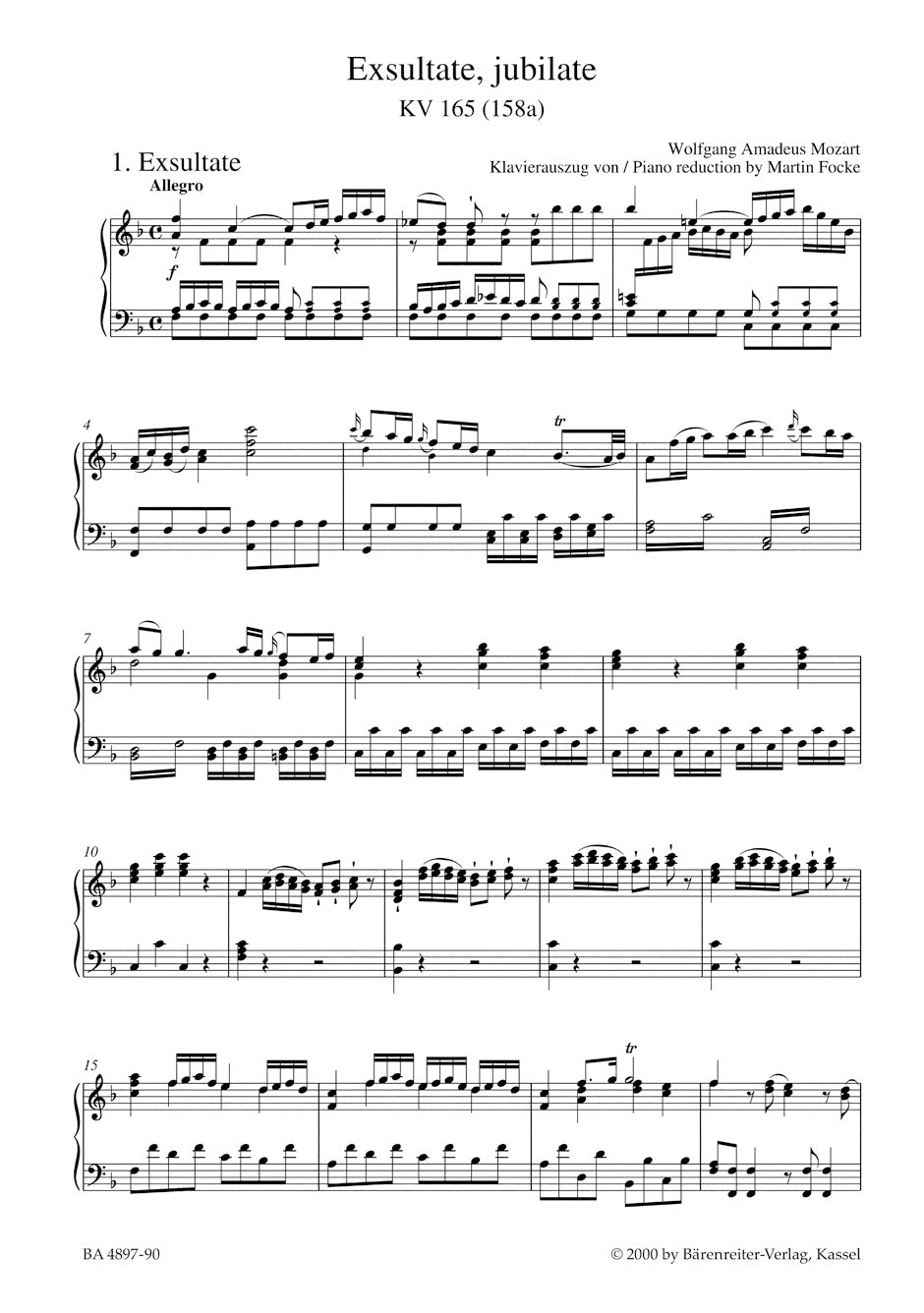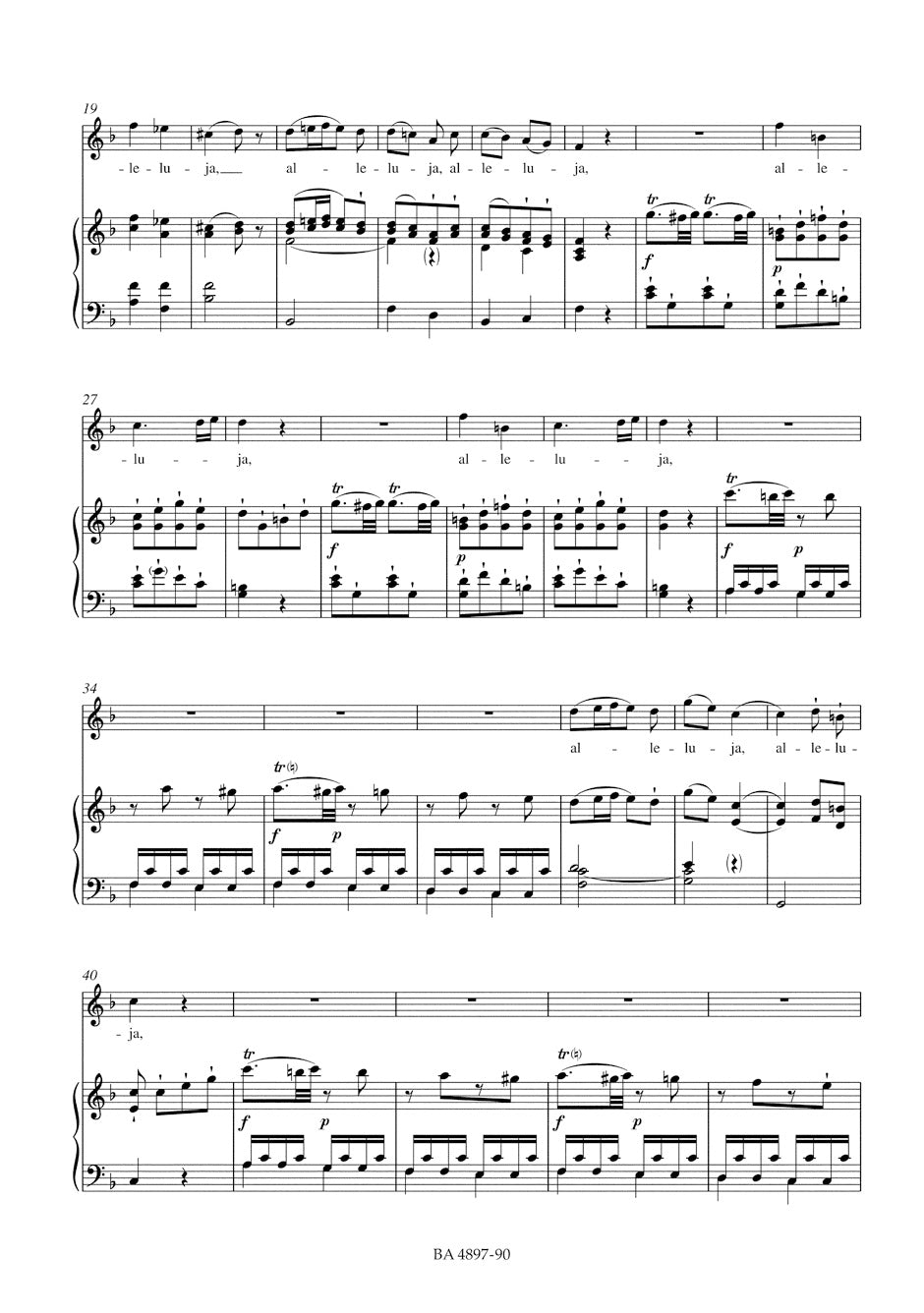


BARENREITER - 345062
Mozart Exsultate, jubilate K. 165 (158a) -Motet-
Composer: Wolfgang Amadeus Mozart
Publisher: Bärenreiter
Instrumentation: Voice
Binding: Stapled
Dimensions: 10.6 in x 7.5 in
Pages: 24
Mozart Exsultate, jubilate K. 165 (158a) -Motet-
Juilliard Store
144 West 66th Street
New York NY 10023
United States
Choose options
Mozart Exsultate, jubilate K. 165 (158a) -Motet-
Juilliard Store
144 West 66th Street
New York NY 10023
United States
Mozart Exsultate, jubilate K. 165 (158a) -Motet-
Juilliard Store
144 West 66th Street
New York NY 10023
United States
Editor: Federhofer, Hellmut / Münster, Robert
Arranger: Focke, Martin
Orchestral scoring : SSolo/2Ob/Fl/2Hn/Str/Org
Product format: vocal score, Urtext edition
Binding: Stapled
Pages / Format: 24 - 27,0 x 19,0 cm
In 1978, when the music manuscripts in Bavaria were being sorted and cataloged in a project sponsored by the Deutsche Forschungsgemeinschaft, a set of manuscript parts for a previously unknown second version was discovered in the town parish church of St. Jakob in Wasserburg am Inn. The music and text of the concluding Alleluja movement were written out by the Salzburg court bassoonist and copyist Joseph Richard Estlinger (c. 1720–1791), who frequently worked for Mozart and his father.
The vocal text of this Salzburg manuscript departs from that of the Milan version in the first aria and in the recitative. It was entered in a different hand. The Salzburg version of the text is clearly related to the feast of the Holy Trinity. There is much evidence that this version was sung for the first time in the Dreifaltigkeitskirche on 30 May 1779 (i. e. Trinity Sunday) by the Salzburg male soprano Francesco Ceccarelli during a service mentioned by Nannerl Mozart. On that day Leopold and Wolfgang Mozart, together with Ceccarelli, were invited to the church’s vicarage at midday. The additional text underlaying of the first aria enabled the solo motet to be employed for the Christmas service as well.
